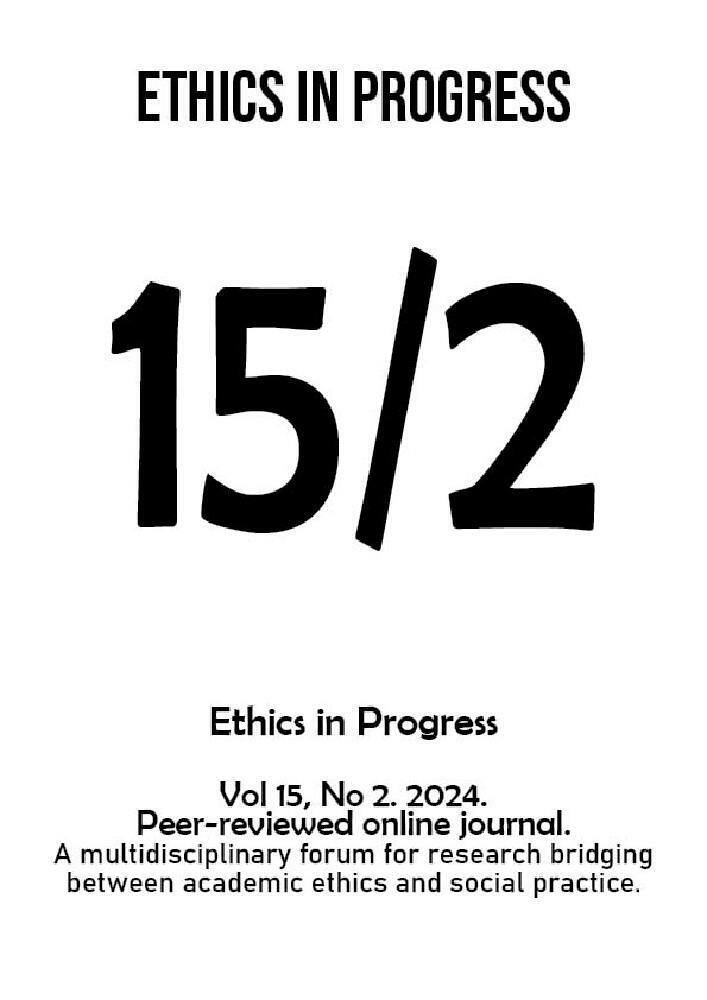Abstract
Hegel’s philosophy of nature (Naturphilosophie) is impossible to separate from the rest of his system, in which nature is shown as a reflection of the idea (Idee) as presented in the logic (in the Enzyklopädie der philosophischen Wissenschaften). The system composed by logic, nature, and spirit, represents a dialectical relation in which logic as the universal, nature as the particular, and spirit as the singular, mediate through one another and develop as immanent and constitutive parts of the system as a whole. Yet, the goal of the philosophy of nature is not unrelated to a philosophy of science in the contemporary sense. The latter aims to solve (among other problems) the problem of dualism between the conceptual scheme/the world and the demarcation of science (and knowledge), where the crucial difference is that the Hegelian philosophy of nature benefits from having an answer to these in the form of the absolute idea (die absolute Idee). In a contemporary sense, the constitution of these problematics would follow an abductive reasoning where the Hegelian idea (Idee) would solve these crucial problems for philosophy of science. The following paper will attempt to provide some guiding points for such a project and suggest the assumptions necessary for its development, with the sole purpose of underscoring the similarities and differences between the Hegelian philosophy of nature and a contemporary philosophy of science.
References
Beiser F. 2003. “Hegel and Naturphilosophieˮ, Studies in History and Philosophy of Science Part A 34(1):135–147. DOI: https://doi.org/10.1016/S0039-3681(02)00083-3
Berger B. 2023. Schelling, Hegel, and the Philosophie of Nature, from Matter to Spirit. New York: Routledge. DOI: https://doi.org/10.4324/9781003009535
Bliss R. & Priest G. (Eds.) 2018. Reality and Its Structure. Oxford: Oxford University Press. DOI: https://doi.org/10.1093/oso/9780198755630.001.0001
Buchdahl G. 1993. “Hegel’s Philosophy of Nature and the Structure of Science,” in R. Stern (Ed.), G. W. F. Hegel: Critical Assessments, Vol. 4 (pp. 15–40). London: Routledge.
Bub J. 2008. “Quantum Entanglement and Information,” The Stanford Encyclopedia of Philosophy (Winter 2008 Edition), ed. by E. N. Zalta, http://plato.stanford.edu/archives/win2008/entries/qt-entangle/
Correia F. & Schnieder B. (Eds.) 2012. Metaphysical Grounding: Understanding the Structure of Reality. Cambridge: Cambridge University Press. DOI: https://doi.org/10.1017/CBO9781139149136
Davidson D. 1984. “On the Very Idea of a Conceptual Scheme,” in Idem, Inquiries into Truth and Interpretation (pp. 183–198). New York: Oxford University Press. DOI: https://doi.org/10.1093/0199246297.003.0013
Deligiorgi K. (Ed.) 2006. Hegel, New Directions. Trowbridge: McGill-Queens University Press. DOI: https://doi.org/10.1017/UPO9781844653775
Einstein A., Podolsky B., & Rosen N. 1935. “Can Quantum-Mechanical Description of Physical Reality Be Considered Complete?” Physics Review 47(10):777–780. American Physical Society, USA. DOI: https://doi.org/10.1103/PhysRev.47.777
Einstein A. 1971. “Letter to Max Born 4 December 1926,” The Born-Einstein Letters (pp. 90–91). Trans. by I. Born. London: Macmillan.
Faye J. 2008 (20021). “Copenhagen Interpretation of Quantum Mechanics,” The Stanford Encyclopedia of Philosophy (Fall 2008 Edition), ed. by E. N. Zalta. http://plato.stanford.edu/archives/fall2008/entries/qm-copenhagen/
Ficara E. 2021. The Form of Truth: Hegel’s Philosophical Logic. Berlin: De Gruyter. DOI: https://doi.org/10.1515/9783110703719
Guzman L. 2015. Relating Hegel’s Science of Logic to Contemporary Philosophy. New York: Palgrave Macmillan (Kindle Edition). DOI: https://doi.org/10.1057/9781137454508
Hegel G. W. F. 1969a. Phänomenologie des Geistes (abbr. PG), ed. by E. Moldenhauer & K. M. Michel, Werke, Vol. 3. Frankfurt am Main: Suhrkamp.
Hegel G. W. F. 1969b. Wissenschaft der Logik II, ed. by E. Moldenhauer & K. M. Michel. Werke, Vol. 6. Frankfurt am Main: Suhrkamp.
Hegel G. W. F. 1969c. Enzyklopädie der philosophischen Wissenschaften im Grundrisse, Erster Teil Die Wissenschaft der Logik Mit den mündlichen Zusätzen (abbr. ENZ I), ed. by E. Moldenhauer & Karl M. Michel. Werke, Vol. 8. Frankfurt am Main: Suhrkamp.
Hegel G. W. F. 1969d. Enzyklopädie der philosophischen Wissenschaften im Grundrisse, Zweiter Teil: Die Naturphilosophie mit den mündlichen Zusätzen (abbr. ENZ II), ed. by E. Moldenhauer & K. M. Michel. Werke, Vol. 9. Frankfurt am Main: Suhrkamp.
Hegel G. W. F. 1985. Wissenschaft der Logik I, Erster Teil die Objektive Logik, ed. by F. Hogemann & W. Jaeschke. Gesammelte Werke, Vol. 21. Hamburg: Felix Meiner.
Hempel C. G. & Oppenheim P. 1965, “Studies in the Logic of Scientific Explanation,” in C. G. Hempel, Aspects of Scientific Explanation and Other Essays in the Philosophy of Science (pp. 245–290). New York: Free Press.
Houlgate S. (Ed.) 1998. Hegel and the Philosophy of Nature. New York: State University of New York Press.
Jago M. (Ed.) 2016. Reality Making. Oxford: Oxford University Press. DOI: https://doi.org/10.1093/acprof:oso/9780198755722.001.0001
Lucas G. R. 1993. “A Re-interpretation of Hegel’s Philosophy of Nature,” in R. Stern (Ed.), G. W. F. Hegel: Critical Assessments, Vol. 4 (pp. 41–51). London: Routledge.
McDowell J. 1996. Mind and World. Cambridge: Harvard University Press. DOI: https://doi.org/10.2307/j.ctvjghtzj
Ng K. 2020. Hegel’s Concept of Life, Self-Consciousness, Freedom, Logic. New York: Oxford University Press. DOI: https://doi.org/10.1093/oso/9780190947613.001.0001
Orsini F. 2021. “Hegel’s A Priori and the Critique of Three Aprioristic Readings of the Science of Logic,” Hegel Bulletin 43(1):47–68. DOI: https://doi.org/10.1017/hgl.2021.23
Perini-Santos E. 2018. “A Second Naturalization for a Second Nature,” in F. Sanguinetti & A. J. Abath (Eds.), McDowell and Hegel: Perceptual Experience, Thought and Action (pp. 177–192). Cham: Springer. DOI: https://doi.org/10.1007/978-3-319-98896-2_10
Pippin R. B. 2015. Interanimations. Chicago: University of Chicago Press (Kindle Edition). DOI: https://doi.org/10.7208/chicago/9780226259796.001.0001
Quine W. V. 1969. “Epistemology Naturalized,” in Id., Ontological Relativity and Other Essays (pp. 69–90). New York: Harvard University Press. DOI: https://doi.org/10.7312/quin92204-004
Raven M. J. (Ed) 2020. The Routledge Handbook of Metaphysical Grounding. New York: Routledge. DOI: https://doi.org/10.4324/9781351258845
Solomon R. C. 1974. “Hegel’s Epistemology,” American Philosophical Quarterly 11(4):277–289.
Westphal K. R. 1989. Hegel’s Epistemological Realism. Dordrecht: Kluwer Academic Publishers. DOI: https://doi.org/10.1007/978-94-009-2342-3
Westphal K. R. 2008. “Philosophizing about Nature: Hegel’s Philosophical Project,” in F. C. Beiser (Ed.), The Cambridge Companion to Hegel and Nineteenth-Century Philosophy (pp. 281–310). Cambridge: Cambridge University Press. DOI: https://doi.org/10.1017/CCOL9780521831673.012
Winfield R. D. 2006. From Concept to Objectivity, Thinking Through Hegel’s Subjective Logic. New York: Routledge.
License
Copyright (c) 2024 Xavier Aranda

This work is licensed under a Creative Commons Attribution-ShareAlike 4.0 International License.





